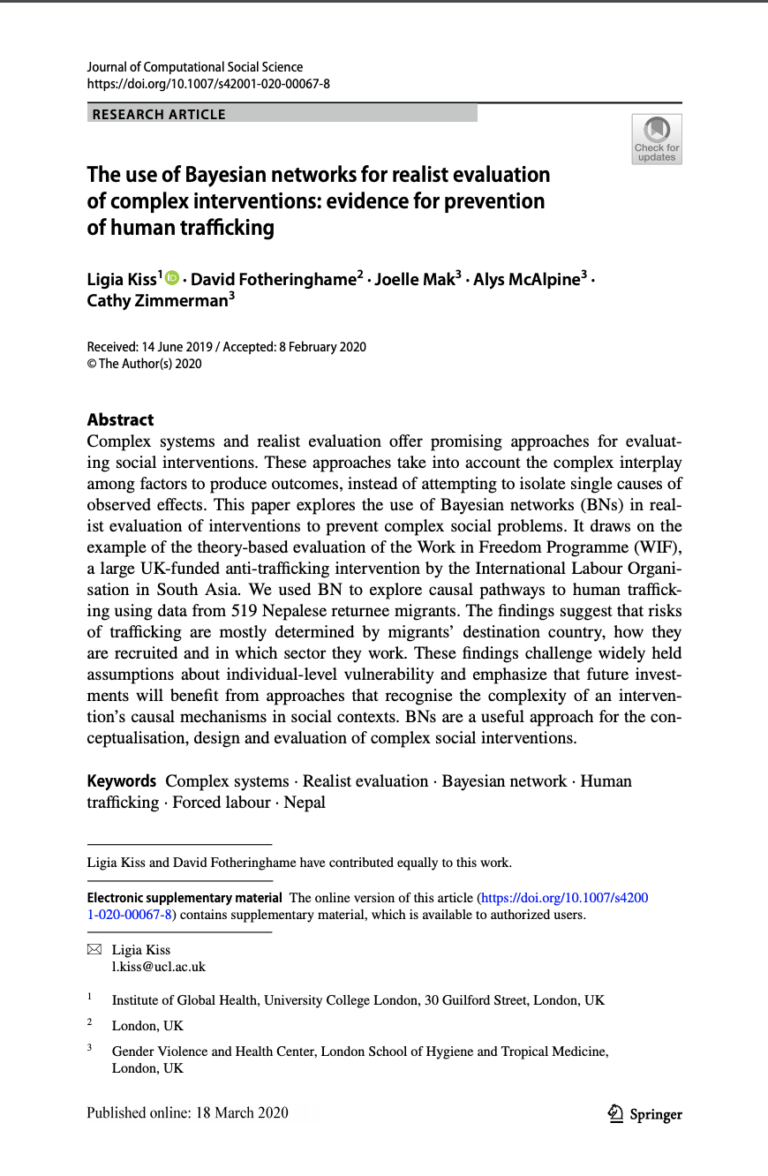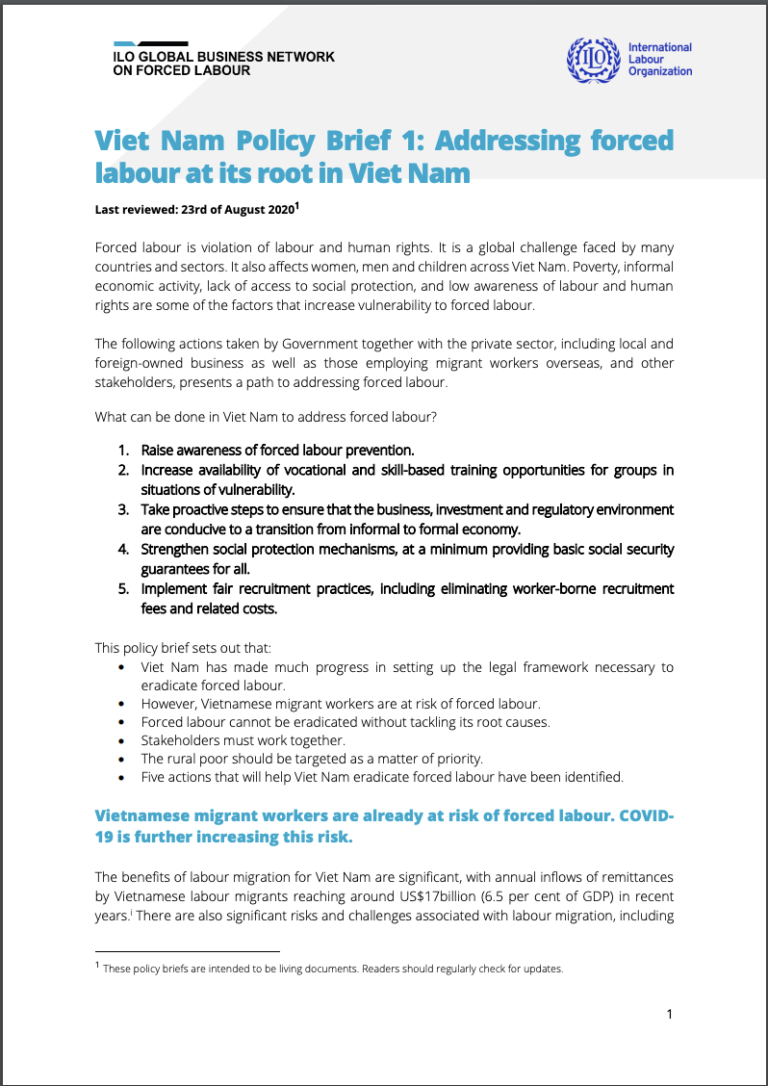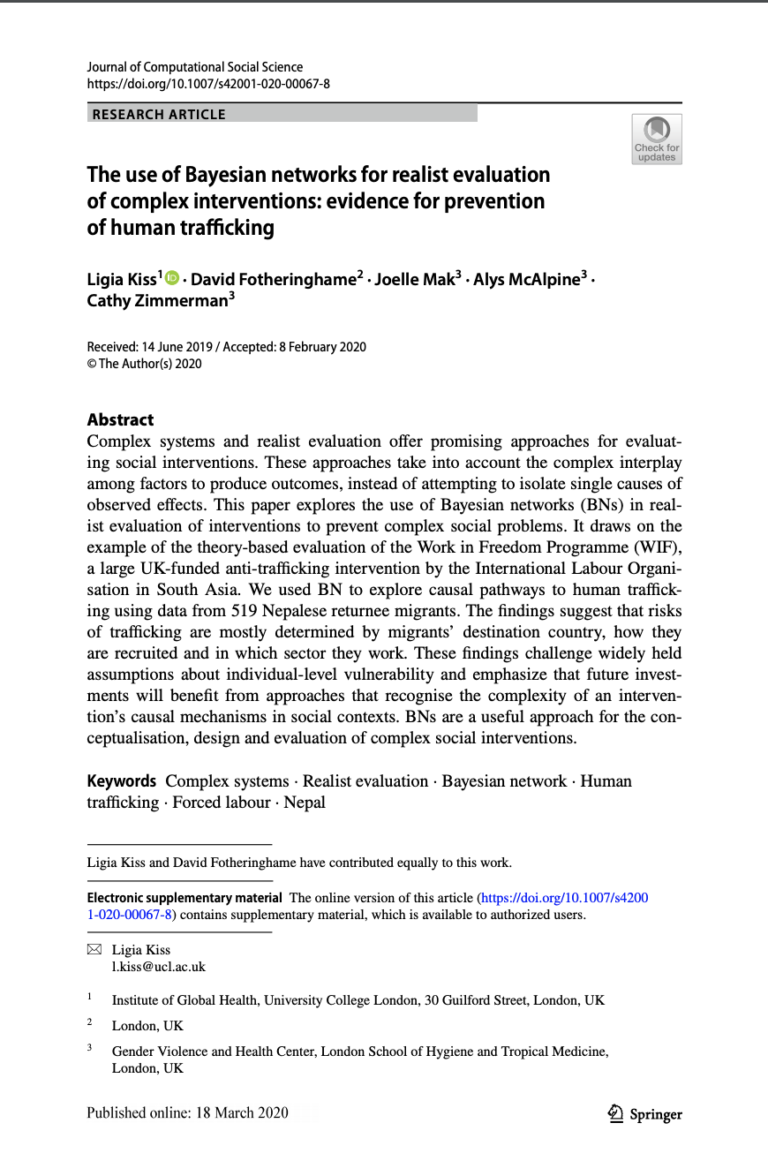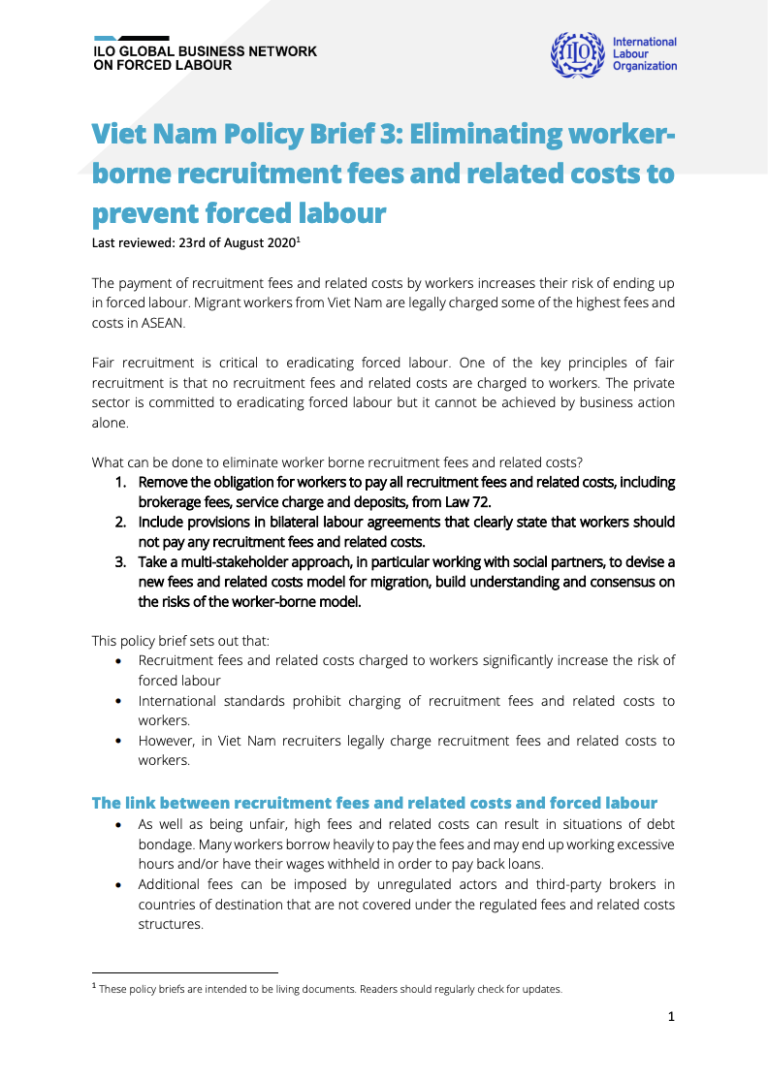Forced labour is violation of labour and human rights. It is a global challenge faced by many countries and sectors. Governments, employer and business membership organizations, workers’ organizations, and other stakeholders all have a role to play in eradicating forced labour and dialogue has a crucial role to play in determining the design and implementation of government action. Eradication is of critical importance to companies operating in, and sourcing from, Viet Nam, as well as to those who have Vietnamese migrant workers in their workforce and their supply chains. Prevention is key and, therefore, addressing root causes and unfair recruitment is necessary to create a conducive environment for business.
ILO GBNFL has produced three policy briefs on forced labour and fair recruitment in Viet Nam. These set out the current challenges and the actions the Government could take in partnership with the private sector and other stakeholders to prevent forced labour and promote fair recruitment.




